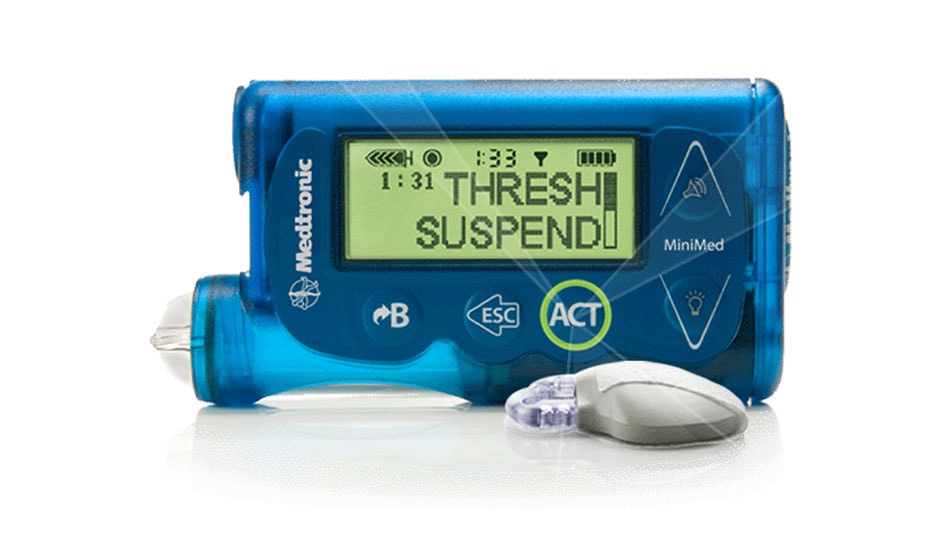What to do if your insulin pump isn’t working

We asked Jennifer Smith of Integrated Diabetes Services to give us a guide for what to do when problems with your insulin pump arise. Here’s her advice:
An insulin pump can be a wonderful option for managing blood glucose levels, one that can add a lot of flexibility to life with Type 1 diabetes. It’s important to remember, however, that no machine runs perfectly all the time. If you have unexplained high blood glucose levels for several hours which may be accompanied by ketones, this could indicate a disruption in insulin delivery and lack of insulin in your body. The pump, and its pieces, may be the problem, and there are a few steps you’ll need to take to see if you can get pump therapy working again for you.
Some pump problems are easily fixable, while others are more complicated. Because of this, don’t wait until after a problem has been resolved to treat yourself. When needed, make sure you treat your levels with an insulin injection and test for ketones; if ketones are positive, then drink water to flush out the ketones and prevent dehydration.
Here are some of the troubleshooting factors to consider:
Settings: Check your settings to ensure the pump is delivering insulin as programmed. It helps to keep a printed sheet with current pump settings to refer to in case of pump failure.
- Is the time on the clock set correctly, and is “AM/PM” in the right place?
- Is the pump suspended?
- Is the basal rate programmed right and enabled?
The insulin: Don’t forget that insulin is affected by temperature.
- Has it been hot outside or have you been out in the heat more than usual?
- Has the insulin vial been out of the refrigerator longer than 28 days?
- Is the insulin discolored?
The reservoir: This piece of the pump has to be in just right.
- Did you follow directions per the pump to fill the reservoir
- Did the pump go through the priming of the tubing (or pod) before you started the pump?
- Is the reservoir fully seated in the chamber of the pump and securely fastened?
The infusion set/cannula and tubing: The problem may be en route from the pump to your body.
- Is there blood at the infusion site?
- Is the site irritated or red?
- Do you smell insulin?
- Does it look like the cannula is under the skin?
- Is the site securely attached to the skin?
- Is there any kinking?
- Is there a bubble in the tubing? (If you see an air bubble in the tubing, disconnect, prime the tubing until you see the air bubble move out the end of the tubing, and then reconnect.)
The kitchen sink approach: If you can’t pinpoint a specific problem, consider changing out everything: open a new vial of insulin, fill a new reservoir/cartridge, and replace the infusion set and tubing.
The pump: It may be a mechanical issue related to the pump and its components. By troubleshooting to eliminate the other issues listed above, you can more quickly discover if the pump itself has failed. If you suspect this is the case, prepare for multiple daily injections and call your pump company representative.
If you need assistance in evaluating a suspected problem with your insulin pump, you can call the pump company and ask to speak to Tech Support or Customer Service for your pump company. You can usually find that contact info on the back of your pump or online.
Integrated Diabetes Services provides one-on-one education and glucose regulation for people who use insulin. Diabetes “coaching” services are available in-person and remotely via phone and online for children and adults. Integrated Diabetes Services offers specialized services for insulin pump and continuous glucose monitor users, athletes, pregnancy & Type 1 diabetes, and those with Type 2 diabetes who require insulin. For more information, call 1-610-642-6055, go to integrateddiabetes.com or write info@integrateddiabetes.com.
Do you have an idea you would like to write about for Insulin Nation? Send your pitch to submissions@insulinnation.com.
Thanks for reading this Insulin Nation article. Want more Type 1 news? Subscribe here.
Have Type 2 diabetes or know someone who does? Try Type 2 Nation, our sister publication.